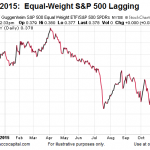Every Thursday, when there is a European Central Bank (ECB) meeting, the market participants await to see the message of one of the most important central banks in the world. The ECB is a relatively young central bank, and this is particularly relevant because it faced many challenges throughout the years.There was not much to mention until 2008 when the Great Financial Crisis in the United States started. The European sovereign crisis began with the common currency’s existence at stake.Add a pandemic and Russia’s invasion of Ukraine, plus extremely high inflation, and you still have just a tiny picture of what the ECB must deal with. The cherry on top is that there is no fiscal union in Europe, so the ECB’s measures always have less effectiveness than the ones of other central banks (i.e., Federal Reserve of the United States, Bank of England).The ECB met in Greece today, perhaps to celebrate Greece’s strong economic performance since the sovereign crisis. And the market unanimously expected that the ECB will be on hold. What did the ECB do?The ECB held the key interest rates stable after ten consecutive rate hikes. The risk at today’s meeting was that the central bank would give up its statement regarding the sticky core CPI inflation.If it did, the risk was that the market expectations regarding the future path of interest rates would adjust. More precisely, the latest market curve, seen below in blue, would have changed its steep in a bearish way.  It did not, even though the ECB’s statement had something for both bulls and bears. One may say it was a boring meeting from the ECB without juicy comments.So where does it leave the euro?Despite the euro not reacting much (i.e., most euro pairs are slightly negative a few hours after the press conference ended), it might still do. One should keep in mind that the ECB on hold faces the pressure of inflation declining much faster than in other parts of the world.In other words, the market will not hesitate to price future cuts earlier than it is now should inflation decline faster.All in all, a lull ECB press conference but with a bit of a dovish message. It remains to be seen if the euro bears will try to push the common currency lower towards the end of the trading year.More By This Author:U.S. Real GDP Rose The Fastest Since Q1 2022; Should You Buy The Dollar? HSBC Share Price Forms A Worrying Chart Pattern Ahead Of Earnings Rising Australian Inflation Is Unlikely To Support The Local Currency
It did not, even though the ECB’s statement had something for both bulls and bears. One may say it was a boring meeting from the ECB without juicy comments.So where does it leave the euro?Despite the euro not reacting much (i.e., most euro pairs are slightly negative a few hours after the press conference ended), it might still do. One should keep in mind that the ECB on hold faces the pressure of inflation declining much faster than in other parts of the world.In other words, the market will not hesitate to price future cuts earlier than it is now should inflation decline faster.All in all, a lull ECB press conference but with a bit of a dovish message. It remains to be seen if the euro bears will try to push the common currency lower towards the end of the trading year.More By This Author:U.S. Real GDP Rose The Fastest Since Q1 2022; Should You Buy The Dollar? HSBC Share Price Forms A Worrying Chart Pattern Ahead Of Earnings Rising Australian Inflation Is Unlikely To Support The Local Currency














Leave A Comment